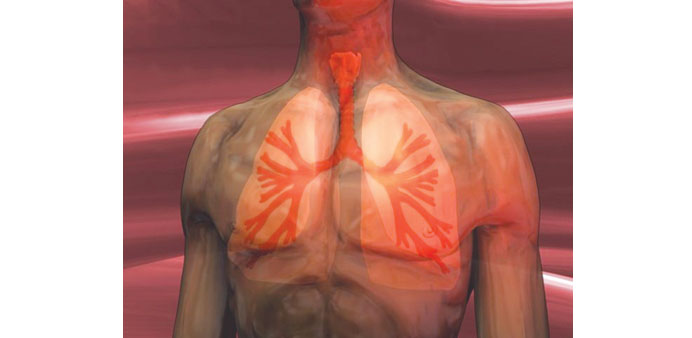By Anthony Harries/Paris
Last year, tuberculosis surpassed HIV/Aids to become the world’s deadliest infectious disease. According to a recent report by the World Health Organisation (WHO), the illness claims about 1.5mn lives every year.
Astonishingly, one out of every three people worldwide lives with a latent TB infection that could eventually develop into the active – and potentially deadly – form of the disease.
Great progress has been made in the fight against TB in recent decades; since 2000, some 43mn lives have been saved as a result.
But world leaders have yet to mount a response commensurate with the scale of the problem. That needs to change – especially as we learn more about the interaction between TB and another deadly global killer: diabetes.
Type-2 diabetes not only renders the body incapable of processing or responding to insulin; it also weakens the immune system, increasing its victims’ risk of developing active TB. People with diabetes are three times more likely to fall prey to TB.
Diabetes can also make patients less responsive to standard TB therapies and elevate the chance of relapse after the disease has been treated.
Meanwhile, by driving up blood sugar in its initial stages, TB can aggravate or lead to diabetes. And, to make matters worse, certain key TB drugs can have adverse interactions with standard oral diabetes medications, rendering them less effective.
These interactions will only become more common. Today, nearly 390mn people suffer from Type-2 diabetes, and within two decades the total number of cases is expected to exceed 592mn. Alarmingly, six of the 10 countries projected to have the highest rates of diabetes by mid-century – Russia, India, China, Brazil, Indonesia and Pakistan – are also classified by the WHO as having high TB burdens.
This is not the first time we face such a problem. Two decades ago, TB and HIV/Aids were paired in a similar deadly interplay. Aids, like diabetes, weakens the immune system, making its victims more susceptible to active TB.
From 1990 to 2005, when HIV was infecting some 2mn people a year in Sub-Saharan Africa, the rate of new TB cases in the region quadrupled.
World leaders were slow to react to the crisis – and the delay caused tremendous suffering and loss of life. Eventually, as the death toll mounted, leaders began to appreciate the scope of the problem and understand the need for collaborative action.
Local healthcare clinics started bundling testing and treatment for the two diseases; and, as anti-viral medications have become available in Africa, the rate of TB infections in HIV patients has begun to fall. But the effects are still being felt today. According to the WHO, about one-third of HIV/Aids deaths in 2014 were attributable to TB.
This time, with diabetes on the rise, we must not wait until the crisis spirals out of control before we act.
On November 2, public-health stakeholders, including representatives of business, civil society and international aid organisations, gathered in Bali, Indonesia, to lay the groundwork for a global campaign to tackle the looming co-epidemic of TB and diabetes – the first-ever health summit specifically focused on a response to the twin scourge.
That event, hosted by the Indonesian Ministry of Health, drew experts from Asia, Africa, Europe and North America. Attendees were asked to sign “The Bali Declaration”, a pledge to implement specific health-care policies proven to help bring down TB and diabetes rates.
The measures include concrete and relatively simple steps like “bidirectional screening”, which requires any person diagnosed with diabetes to be tested for tuberculosis and vice versa. Early bidirectional screening programs in India, China, and other heavily affected countries offer hope that the two diseases can be better managed.
The Bali summit highlighted the indispensable opportunity we have to take preemptive action against a looming health-care crisis.
But it must be followed by urgent action and commitment of resources. World leaders must be made to recognise the dual threat of TB and diabetes – and make it a high policymaking priority – before it is too late. - Project Syndicate.
♦ Anthony Harries is senior adviser and director of the Department of Research at The International Union Against Tuberculosis and Lung Disease.

